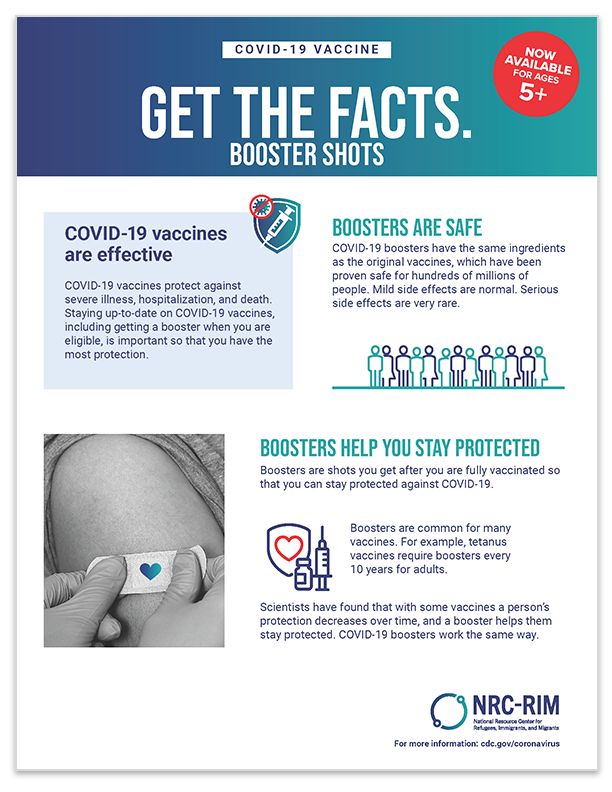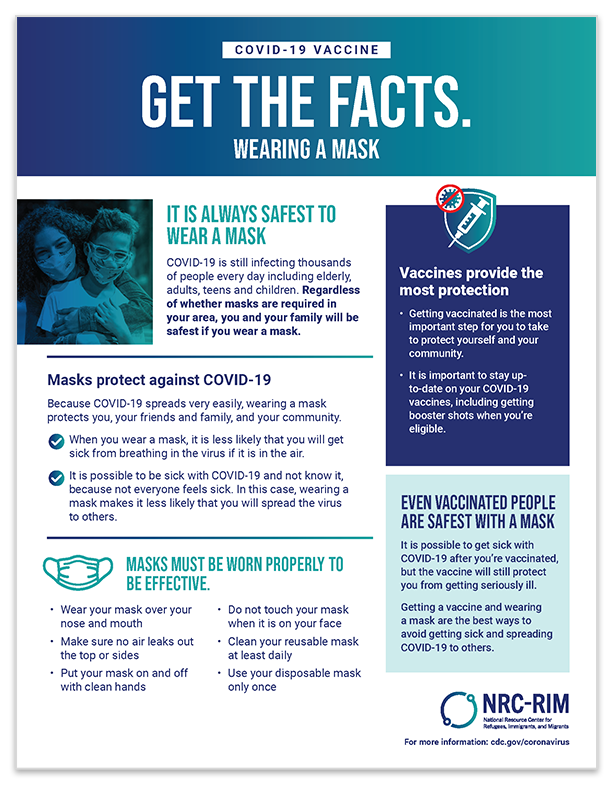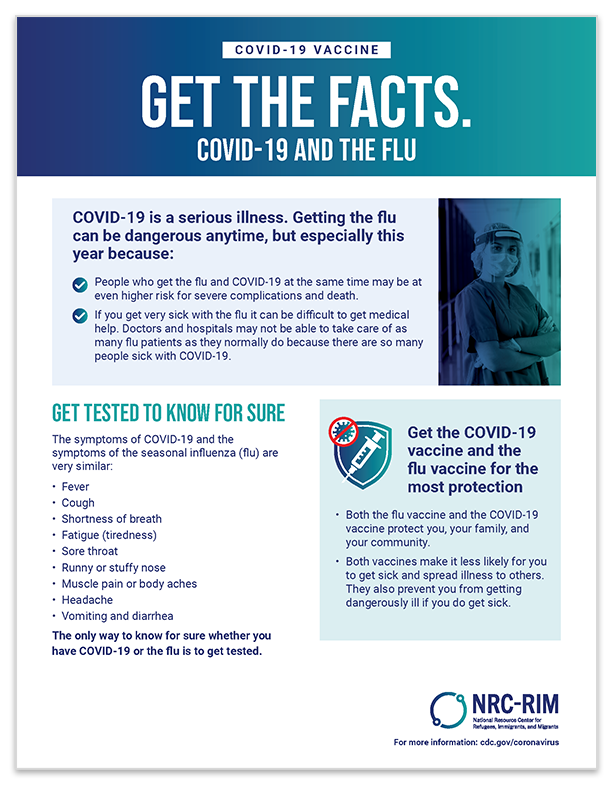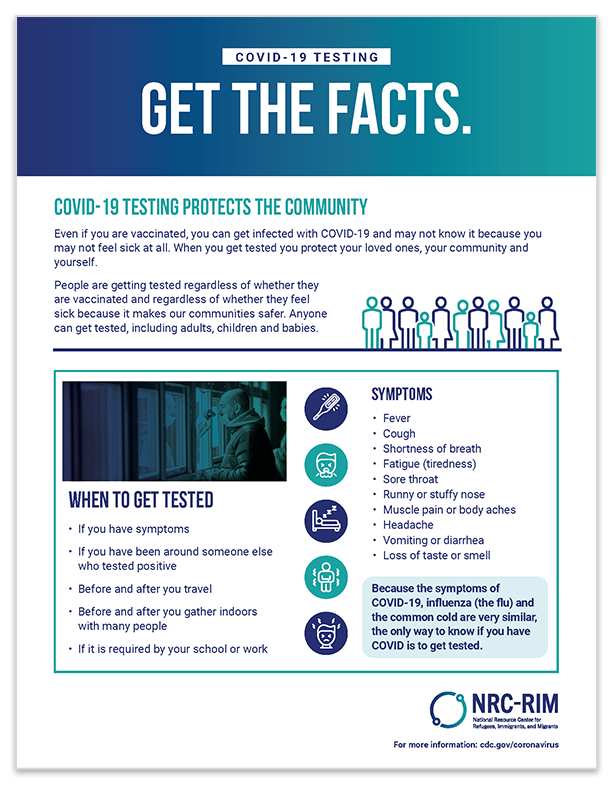
Protect yourself and others as cases increase
COVID-19 infections come in waves, where many people get sick at once. After a wave, fewer people get sick. Some things that determine when a wave will happen include:
- How long it has been since people in a community have been vaccinated
- COVID-19 variants
- Certain activities, like when many people gather indoors in colder months or for holidays
- How many people have been sick recently
- Rules about COVID-19, like mask and testing requirements
There are ways to protect yourself during waves. Even if you do not take these actions all the time, doing them during waves will protect yourself and your community.
Key messages
- The best way to protect yourself, your family, and your community is to be up-to-date on your COVID-19 vaccines. If you are not up-to-date, you are much more likely to get infected with COVID-19, get dangerously ill or die, and spread it to others.
- Being up-to-date means getting both doses of a two-shot vaccine, and then getting any booster shots you are eligible for. Adults, teens, and children as young as 5 years old can get a booster shot.
- The vaccine has been proven safe in hundreds of millions of people of different races, ethnicities, and ages. It is much more likely that you will get serious complications from COVID-19 than from a vaccine.
- The vaccine is free for everyone, regardless of immigration status or whether you have health insurance or an ID.
Resources: The Get Vaccinated campaign creates awareness about COVID-19 vaccines and the impact they have on the collective group. The Get the Facts campaign offers facts about vaccines in a simple and memorable way. Our conversation guides cover a variety of topics, including boosters
Key messages:
- Regardless of whether masks are required in your area, you and your family will be safest if you wear a mask.
- Even vaccinated people are safest with a mask.
- While staying up-to-date on your COVID-19 vaccines is the most important step for you to take to protect yourself and your community, wearing a mask provides even more protection.
- When you wear a mask, it is less likely that you will get sick from breathing in the virus if it is in the air.
- It is possible to be sick with COVID-19 and not know it, because not everyone feels sick. In this case, wearing a mask makes it less likely that you will spread the virus to others.
Resources: View our fact sheet and conversation guide to answer common questions about wearing a mask, including how to wear one properly.
Key Messages:
- Staying home from work, school or social events anytime you feel sick and while you wait for test results is one of the most important things you can do to protect your family, friends and community.
- The symptoms of COVID-19 can include cough, shortness of breath or difficulty breathing; fever; fatigue (tiredness); sore throat; runny or stuffy nose; muscle pain or body aches; vomiting or diarrhea; headache; and new loss of taste or smell
- Because the symptoms of COVID-19, influenza (the flu) and the common cold are very similar, the only way to know if you have COVID is to get tested.
- Most people can treat symptoms of COVID-19 at home. Many healthcare providers recommend taking medicine, like acetaminophen or ibuprofen, to reduce fever; taking cold medicine to make you more comfortable; drinking lots of water; and getting plenty of rest.
- There are other medicines available to help you recover from COVID-19, but it is important to start them right away, especially if you are at risk for becoming dangerously ill. See a doctor or pharmacist to get this medicine if you are unable to treat your COVID-19 symptoms at home.
Resources: View our fact sheet on COVID-19 and the flu, and review our conversation guide on COVID-19 infection and recovery for more details.
Key Messages:
- Even if you are vaccinated, you can get infected with COVID-19 and may not know it because you may not feel sick at all. When you get tested you protect your loved ones and your community.
- People are getting tested regardless of whether they are vaccinated and regardless of whether they feel sick because it makes our communities safer.
- Anyone can get tested, including adults, children and babies.
- Because the symptoms of COVID-19, influenza (the flu) and the common cold are very similar, the only way to know if you have COVID is to get tested.
- You may be able to get a test at a doctor’s office, a community testing site, work, school, or a pharmacy. Many pharmacies also carry at-home tests you can do yourself.
- You can get a confidential test regardless of your immigration status or whether you have medical insurance or an ID.
Resources: View our fact sheet and conversation guide to answer common questions about COVID-19 testing. For at translations of at-home testing instructions and other resources, view our testing toolkit.
Stay 2 meters (6 ft) away from people who are not in your household, especially when indoors.
When gathering with others, get fresh air by opening windows or spending time outdoors.
Wash your hands often, especially after you have been in a public place, or after blowing your nose, coughing, or sneezing.
Clean surfaces regularly and after you have visitors in your home.
Monitor your health daily by taking your temperature with a thermometer
Get a primary care provider so you have someone you can call if you get sick.
Learn if you qualify for medicaid, refugee medical assistance, or other programs that help you pay for healthcare.



